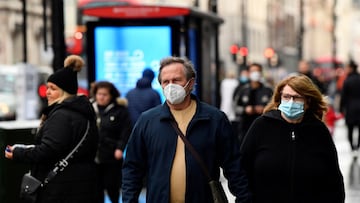Was a new covid-19 variant found in New York City's sewage water?
Scientists examining samples of sewage water in New York City found a viral fragment that does not relate to any variant reported in a human patient.


In January scientists in New York City examining sewage water samples to track the levels of covid-19 virus found something they did not expect. The New York Times has reported that this group has identified a viral fragment with various mutations that cannot be linked to any of the known variants captured in human patients.
Microbiologists at Queensborough Community College, who identified the fragment, published a paper in Nature on Thursday 3 February, detailing possible hypothesis as to its origins.
The mystery of multiple cryptic #SARSCoV2 lineages discovered in New York City wastewaterhttps://t.co/xTPZuqkIyD@NatureComms https://t.co/kb2jQARFhi @EmilyAnthes pic.twitter.com/pPO9iejXD2
— Eric Topol (@EricTopol) February 3, 2022
Could the sample come from an transmission in an animal population?
Possibly. The research team does believe quite likely that the sample may have mutated as it was spread through an animal population. One of the main guesses as to what animal is could have been... rats.
"Some lean toward the explanation that the virus is coming from people whose infections aren’t being captured by sequencing. But others suspect that the lineages may be coming from virus-infected animals, possibly the city’s enormous population of rats." https://t.co/ievJ6IAyNh
— Justin Hendrix (@justinhendrix) February 3, 2022
Humans have been known to infect their pets, but also took rats into account because "cat and dog populations are dwarfed by the NYC rat population, which is estimated to number between 2–8 million animals."
Related stories
Scientist are confident that they will soon be able to identify the origins of the linkage.
More members of the team have joined, bringing with them new techniques to better isolate the DNA to find a possible match more quickly. Using pseudoviruses, harmless versions of the virus, with the same mutations, the team was able to identify which strains of covid-19 would allow for the passing between rats and mice. Beta, for example, is contagious with this population, while the some of the original strains are not. Regardless no connections to the rat, cat, or dogs has been found, and many on the team believe that they are not "hitting the right animals."

